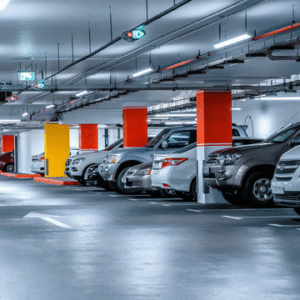Waterproofing is the process of protecting a structure from water infiltration. It involves applying barriers and sealants to various parts of a building, such as the foundation, roof, basement, and walls, to prevent water from seeping in and causing damage. This essential construction and maintenance technique not only safeguards the physical structure but also protects health, property value, and long-term investments.
In areas with fluctuating climate conditions like Washington, DC, waterproofing is more than just a preventive measure—it’s a necessity. With heavy rains, snowfall, and urban runoff, properties are at constant risk of water-related issues such as mold, mildew, wood rot, and structural weakening. Ensuring your home or commercial property is properly waterproofed can save thousands of dollars in repairs down the line.
Residential Waterproofing
Water damage is one of the most common and costly issues homeowners face. In Washington, DC, where seasonal humidity and sudden storms are frequent, the risk is even higher. Residential waterproofing addresses common problem areas like basements, crawl spaces, roofs, and bathrooms. Whether you live in a single-family home or a townhouse, moisture can silently damage your property over time if left unchecked.
Common residential waterproofing methods include:
- Basement waterproofing Involves applying sealants, installing sump pumps, and improving drainage systems to prevent leaks and flooding.
- Roof waterproofing: Uses membranes and coatings to protect against rainfall and snow accumulation.
- Bathroom and kitchen sealing: Ensures that wet areas are sealed to avoid mold and tile degradation.
- Crawl space encapsulation: Covers the area with vapor barriers to prevent ground moisture from rising into the home.
When properly installed, residential waterproofing can increase energy efficiency, improve air quality, and protect the structural integrity of your home for years to come.
Commercial Waterproofing
Commercial waterproofing involves more extensive planning and execution due to the size, complexity, and usage of commercial buildings. Office buildings, retail centers, hotels, and industrial facilities require customized waterproofing systems that comply with building codes and safety standards.
Commercial buildings are exposed to unique risks:
- Flat roofs that accumulate water if not properly drained
- Large exterior walls that expand and contract with temperature changes
- High foot traffic areas that wear down protective coatings faster
- Mechanical penetrations (e.g., HVAC systems) that create points of entry for water
Solutions include:
- Applying waterproof membranes on rooftops and balconies
- Installing joint sealants on expansion points
- Using drainage systems for sub-grade walls and basements
- Reinforcing curtain walls and façade protection systems
Without proper commercial waterproofing, even small leaks can lead to significant damage, mold outbreaks, and operational shutdowns.
Why Waterproofing Matters
Washington, DC presents unique waterproofing challenges due to its blend of old and new buildings, high humidity, and variable climate. Many older homes and structures in DC were built before modern waterproofing standards and may be especially vulnerable to leaks and foundational issues.
In the summer, the region faces high humidity and sudden thunderstorms. In the winter, melting snow can seep into cracks and expand when refrozen, damaging masonry and concrete. Urban density also contributes to poor drainage in some areas, which increases water exposure around foundations.
That’s why it’s crucial to partner with waterproofing experts who understand local construction, weather patterns, and city regulations. Whether you’re working on a home in Georgetown or a commercial facility in Capitol Hill, tailored waterproofing ensures your property is well-protected in every season.
Benefits of Hiring Waterproofing Experts
Hiring professional waterproofing services is the smartest way to ensure your property remains dry, safe, and structurally sound. Experts don’t just apply materials—they assess the entire property to find current and potential issues, then develop a customized plan that meets building codes and environmental needs.
Key advantages include:
- Accurate diagnosis of water entry points
- Use of high-quality, long-lasting materials
- Compliance with safety and construction codes
- Cost-effective solutions that prevent expensive damage later
- Warranties and follow-up maintenance options
For example, Superior Damage Restoration is known for providing high-quality waterproofing services with a reputation for reliability and local expertise. They understand the unique requirements of Washington, DC buildings and offer both residential and commercial waterproofing solutions.
Conclusion
Waterproofing is not just a one-time project—it’s an ongoing investment in your property’s safety, value, and longevity. Whether you’re managing a home, retail store, or corporate building, proper waterproofing is essential to protect against damage, maintain indoor comfort, and avoid costly repairs in the future.
From residential waterproofing that safeguards your family’s home to commercial waterproofing that secures large-scale properties, the right systems can make all the difference. Don’t wait for water damage to become visible before acting—engage with professional waterproofing services early and stay ahead of the problem.
Whether you’re dealing with an old brick townhouse in Washington, DC or a modern high-rise, moisture protection should always be a priority. With the guidance of waterproofing experts, you can enjoy long-term peace of mind knowing your structure is safe from water intrusion.
Frequently Asked Questions
- How do I know if my home needs waterproofing?
Look for signs like musty odors, water stains on walls or ceilings, mold growth, or cracks in the foundation. A professional inspection is the best way to assess the need. - How much does waterproofing cost in Washington, DC?
Costs vary based on the size of the property, the type of system used, and the severity of the moisture issue. Basic services may start from a few hundred dollars, while more complex jobs can reach several thousand. - Can I waterproof my property myself?
DIY solutions may work for very minor issues, but they often fail to address underlying problems. It’s best to hire professionals for a comprehensive and lasting result. - How long does waterproofing last?
Most professional waterproofing systems last between 5 to 15 years, depending on the materials and installation quality. Regular maintenance helps extend their lifespan. - Are there eco-friendly waterproofing options?
Yes, many modern waterproofing products are environmentally friendly and low in VOCs (volatile organic compounds). Ask your contractor about sustainable options.




